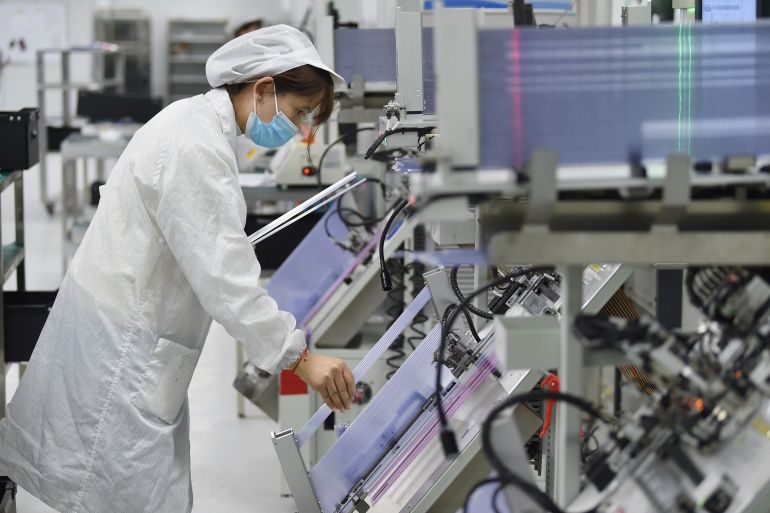China’s exports tumble further as global demand falters
Analysts downgrade expectations for the economy for remainder of 2023 as factory output continues to slow.

China’s exports have shrunk faster than expected in May and its imports have fallen, albeit at a slower pace, amid a struggle to find demand abroad and sluggish domestic consumption.
Exports from the world’s second-largest economy fell 7.5 percent year-on-year in May, the biggest decline since January and swinging from 8.5 percent growth in April.
Keep reading
list of 3 itemsTesla boss Elon Musk kicks off high-stakes China trip
China scaling back spending in Southeast Asia, report says
Imports contracted 4.5 percent, a slower pace of decline than the 7.9 percent in the previous month.
Falling global demand
The poor export performance reflects weak demand for Chinese goods, as does the weak import performance since China brings in parts and materials from abroad to assemble finished products for export.
Asian stocks fell into the red after the data, as did the yuan and the Australian dollar, a commodity currency that is highly sensitive to swings in Chinese demand.
China’s post-pandemic stock boom has faded as small-time investors turn bearish on equities and, instead, double down on safer assets amid a stuttering economic recovery.
The economy has been hit by both faltering demand at home and abroad, with the ripple effects felt across the region.
South Korean data last week showed shipments to China slid 20.8 percent in May, marking a full year of monthly declines, with Korean semiconductor exports dropping 36.2 percent, suggesting weak demand for components for final manufacture.
Chinese imports of semiconductors fell 15.3 percent.
Demand for raw materials broadly weakened with coal imports pulling back from the 15-month high hit in March, amid soft appetite from the power and steel sectors. Copper imports slid 4.6 percent in May from a year ago.
China downgrading economic expectations
“The weak exports confirm that China needs to rely on domestic demand as global economy slows,” said Zhiwei Zhang, chief economist at Pinpoint Asset Management.
“There is more pressure for the government to boost domestic consumption in the rest of the year, as global demand will likely weaken further in the second half.”
Having beaten expectations in the first quarter, analysts are now downgrading their expectations for the economy for the rest of the year as factory output continues to slow amid persistently weak global demand.
The government has set a modest GDP growth target of around 5 percent for this year after falling significantly short of its 2022 target.